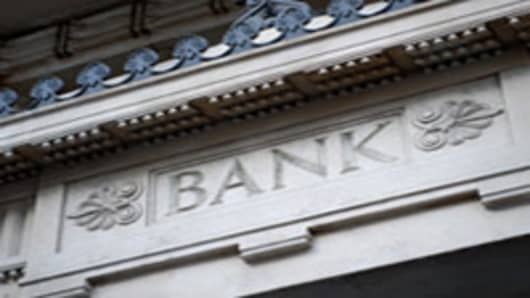The downgrade on Thursday of 15 major international banks and securities firms by Moody’s Investors Service is “absurd” as the financial health of these institutions is at the best it has been in years, one analyst tells CNBC.
“This is one of the most absurd things that Moody’s has ever done perhaps in the history of the company,” said Dick Bove, Vice President of Equity Research in the Financial Sector at Connecticut-based Rochdale Securities.
The fundamentals of the American banking industry point to balance sheets that have improved “dramatically” over the last 4 years, Bove said. Equity-to-assets ratio is as high as they were in 1938, liquidity as a percentage of assets is at a 30-year high, their reserves against bad loans are up, bad loans are down, he said.
“In any metric that you look at… the banks have shown improvement in earnings in every one of the past 11 quarters year over year. If you go into the bond market, where Moody’s did the downgrade, prices of bank bonds are going up. Not only are they going up, they are going up faster than the prices of Treasurys, so what in heavens’ name is Moody’s doing?” Bove said.
Bove has been a consistent advocate of buying bank stocks, particularly the large institutions that he says have unfairly become targets of government overreach.
The ratings agency said it downgraded the credit rating of banks that included Bank of America, Citigroup, Goldman Sachs, JPMorgan and Morgan Stanley, because their long-term prospects for profitability and growth are shrinking.
Bove disagrees, saying that banks can easily withstand a “moderate” downturn and even a severe recession as shown by the stress tests at the beginning of the year.
“Since we are not talking about a depression, nor a depression that’s worse than the one that occurred in the 1930s, I don’t see how a downturn of moderate size is going to cause any problem with banks’ balance sheet,” he said. “What it will do is to lower the growth of bank earnings. Banks do not do well in weak economies, so it will lower the growth rate of their earnings.”
Stress tests conducted by the Federal Reserve at the beginning of the year showed that the majority of the largest US banks will continue to have enough capital to satisfy regulators, even if they suffer a financial shock that includes unemployment hitting 13 percent and a 21 percent drop in housing prices.
But a moderate slowdown will not impact the banks’ financial health, says Bove. “It will not impact their balance sheets, it will not create a financial crisis of any nature,” he added.
- By CNBC's Jean Chua.


